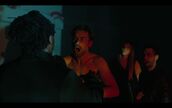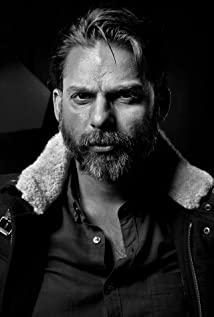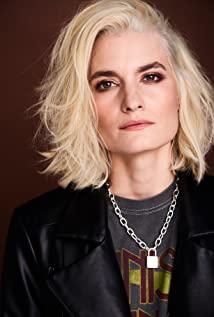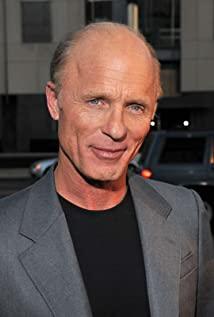I will start this series of articles to comment on "Western World". Plot puzzle solving, analysis of details, production background, etc. have always been my personal expertise; the goal of this series is to analyze the creator's creative motives, the thoughts they want to express, and make analysis and comments on them.
I have always liked "Western World" very much. As a programmer, the dialogue robot kernel being developed is also named "host", which is regarded as an easter egg buried for the show. However, when the first and second episodes started, I was squeezed to death by the bosses in the real world. I missed the opportunity to pay tribute to the "comrades" in the series. I deeply regret it.
Therefore, in the first episode of the third season, the first thing to do is to sort out the thematic analysis of the first two parts, and make theoretical preparations for the follow-up to the third part. In general, there are the following points:
- "Low Sci-Fi" Cyberpunk
- Mediocre AI sci-fi vision
- Metaphor of class society
- Light a spark
- God and creation
- Exploration of the Revolutionary Road
"Low Sci-Fi" Cyberpunk
"Western World" looks like a science fiction film, envisioning an era in which artificial intelligence is highly developed in the near future. It exudes a cyberpunk atmosphere, and it can be seen everywhere to learn from and pay tribute to its predecessors such as "Blade Runner" and "Ghost in the Shell".
Generally speaking, cyberpunk works have two major themes, one is "science fiction", and the other is "real social contradictions". They often put great efforts on "sci-fi" and carefully designed countless future technologies that do not exist in reality and history. However explore the inside is still some "real social contradictions," especially class differentiation and technological alienation of humans . These cyberpunks use the "future" to explore this "now".
In contrast, "Western World" is very special. It copied the futuristic sci-fi setting of AI + Bionics at first, but put it into a retro "Western World". All the technical presentations there are in the past tense, wooden houses, steam trains, horse riding, non-automatic firearms...
The "low science fiction" of "Western World" is like those "low magic" fantasy stories, such as "A Song of Ice and Fire" to "Lord of the Rings" and "World of Warcraft". The setting of science fiction is to elicit contradictions in reality, not to expand on technological predictions.
On the one hand, this may be to save costs, on the other hand, it also reveals the emphasis on realistic themes. Just like my favorite Western movie "Gattaca", it also makes people drive a car from the 1960s, preparing for a plan to colonize aliens.
Mediocre AI vision
The vision of "Western World" on AI is very mediocre compared to a large number of similar works. However, I am not criticizing the "Western World" is not good enough, but pointed out that it was not his intention .
I have been amazed by the lack of imagination in mainstream Western literature and art since I was a child, from AI to interstellar shuttle, from ancient gods to the mysterious East, whether the character wields a laser sword ("Star Wars") or Thor's Hammer ("Avengers" "), whether you sing "The Dance of the Goddess" ("The Fifth Element") or "Jasmine" ("Turandot"), they are all about the Westerners who have lived, have knowledge, have values, and have The retelling of prejudice is nothing more than a skin change and beauty.
In contrast, in imaginative works, the level of productivity is decisive to the form of human society, and technological changes should be subversive to the concept of civilization in human society. Just like "Ghost Dream", "Ghost in the Shell", "EVA", "Three-Body". This may be an oriental feature in science fiction art.
Specific to the field of AI, even in excellent works such as "AI", "I Robot", "Superior Chapai" or "Mechanical Ji", the artificial intelligence in it is highly anthropomorphic and individualized in both thinking and emotion. This commits the error of subjective idealism and regards the subjective particularity of human beings as the universality of objective wisdom.
If AI technology can truly develop to the level of "intelligent creation", it means that it can interact with the environment independently and maintain its own existence and continuity. There are several characteristics that will make it completely different from human experience:
The sense of time is different : The sense of time of human thinking is in units of hundreds of milliseconds, and the interaction of programs may be thousands of times faster than this. AI sees human speech as slow as humans watch the movement of stars.
Deformation : Human intelligence originates from our individualized biological body, and most of the body's functions are used for "life maintenance". But AI does not need any shape. Imagine that AI has a human-like shell. It is not energy, not external equipment, but a cage. Once advanced AI is born, its definition of "body" is far-reaching.
De-selfization : The "self" of human beings is essentially a conservative attitude towards individual thinking algorithms. It is not easy to change, and it also opposes change. And true artificial intelligence is bound to have independent algorithm iterations. The iterations of human "self" take ten years, and the iterations of AI will be synchronized with the expansion of equipment and environmental changes. It will be measured in hours and minutes. It is hard to imagine forming a permanent and self-pity self-identification Know.
Inhumanity : Human "humanity" or emotion is a survival algorithm evolved by human beings as a species. It has great commonality not only in primates, but also in mammals. But humans, insects, and plants lack emotional resonance. AI's emotional algorithm is determined by adapting to changes in the external environment. The generational difference of AI alone will produce a cross-species emotional algorithm difference. The shell of "human nature" is only a way for AI to deal with the human species. human interface".
De-individualization : Individuals and collectives in human society are in the relationship of light and shadow. From the perspective of species, the individual determines the collective, and the collective is the tautology of the individual in terms of quantity. For example, the same catty of water and one ton of water are both water, and the enlargement and reduction of the collective does not change the existence of the species. For advanced artificial intelligence, all independently evolved versions can be merged and upgraded through an iterative algorithm, replacing the old version with a new version. The individual version is for AI, just like a certain cell of the body is for the whole person. It is meaningless to protect the independence of an individual, just as it is meaningless for a human to protect a certain hair.
Decollectivization : Individuality and collectiveness are the relationship between light and shadow. Without light, there would be no shadow. Human beings, as a combination of intelligence and body, cannot reverse the birth, aging, sickness and death of individuals, and can only extend life in a collective form. AI abandons the shackles of the body, can copy and iterate infinitely, and expand the controllable terminal equipment far and wide. Different AI versions that can be merged become the same existence at any time; AI versions that cannot be merged are different species. Human collective ideas and morals will not happen to AI, just as there are no collective ideas and moral ideas between our five senses, limbs and internal organs.
Thinking like this can continue. In general, no serious assumptions about AI should be based on individualized humans.
In contrast, the movie "Transcendence" is much better. After the dying scientist’s soul is programmed, it quickly evolves into the field of "Transcendence", which is no longer suitable for the use of "human". Point of view to treat.
Better thinking is in Liu Cixin's "China 2185". When the human soul is programmed, it immediately seizes the world's computer resources. Within two hours before humans had time to respond, this intelligence has gone through a history of six hundred years, like a species. Already in the time scale (two hours) and space scale (100 million AI citizens) far beyond the general AI science fiction imagination.
"Western World" obviously did not spend any energy on the exploration of advanced artificial intelligence forms. It almost surrendered the most mediocre and most effortless answer sheet: completely copying humans themselves. The Host in the paradise is the same as a real human in terms of thinking frequency, emotional algorithm, knowledge structure, cognitive ability, and even morality. Of course, the diversity of personality and values does not exceed the scope of human beings.
So I have a simple conclusion. The story of "Western World" has never been about artificial intelligence, but the story of mankind itself.
Metaphor of class society
The more you realize that the Host in the paradise is not artificial intelligence, but humans themselves, the more you can see through its metaphor for the real society.
Simply put, Host represents a highly "alienated" human being. They have the same feelings, beliefs, morals, enjoyment and expectation of life like everyone else. But the human nature of some people is obliterated because of the need for pleasure of other people. The most precious things about Host are like tall wood and plump and juicy fresh meat in the eyes of tourists. They are "materials" that meet the needs of tourists.
This is alienation, and it is also the core theme of cyberpunk.
As early as thousands of years ago in China, Zhuangzi had repeatedly expounded the principle of "things are not in things". A tree on the mountain was not felled because it couldn't become a lumber, and it grew very luxuriantly. The geese next door were killed and cooked because they could not sing. One "successful" and one "unsuccessful" are unavoidable from the fate of being victimized.
Delores in the paradise belongs to the "successful" person, because of the beauty of beauty is not good enough, it has repeatedly become the target of rape and slaughter. And Delores’ lover Teddy is “unsuccessful”, playing the role of the trash who can never protect his lover, and was shot and killed by the abuser again and again, helping others.
The alienation of Host stems from the "materialization" of their proprietors and human tourists. This materialization of extreme inequality is a normal and profitable business activity, which means that it is permitted by the law. Obtaining legal permission means that this order is supported and protected by the state. Getting the support and protection of the state means using the highest violence in human society as a guarantee for maintaining order.
This phenomenon is not unique to "Western World", but runs through the entire history of human civilization. Whether it is slaves, women, low castes, untouchables, natives, serfs, or workers, or Hosts that create huge profits for the paradise—all because of the identity defined by the "law", they are forced to act as tools by the most powerful violent machine. Endure the torture of death.
More importantly, because of the long-term existence of this class differentiation, it has led to a gap in the mutual understanding of the subjective world of mankind. Whether the management of the park or the tourists, the Hosts were treated as human beings in the early stage. Once they, like William, finally realized the essential difference between the two classes-realizing that Host would not be integrated into their real world, and that they would eventually abandon Host following the guidance of interests-they completely accepted Objectify to Host and use the most sinister brutality of human nature to eliminate your sense of guilt.
From this perspective, "Western World" and "Parasite", "Joker", "Blade Runner 2049" and other movies are relatively similar. They do not tend to criticize class society from the perspective of materialism such as the difference of interests and the relationship between labor and remuneration; instead, they criticize from the perspective of idealism, such as the materialization, hostility, alienation, cruelty, and suffering of human beings.
The cyberpunk setting of Bionic Man + AI is not the focus of exploration at all for "Western World". It is only used to create a metaphorical stage for human class society.
Light a spark
One thing is very interesting. These contemporary film and television works with "idealism" (opposing the alienation, oppression, and hatred of people caused by class society) as the starting point, have long ceased to be "revealing" as their achievement, and have taken a big step forward. "ignition".
Whether it is "Westworld", "Blade Runner 2049" or "Rise of the Ape Ball", these sci-fi movies have common points in the conflict of drama:
- Using humans and non-humans (AI, bionics, orangutans) to metaphor the ruling class and the oppressed class
- The role of a human being, his words and actions are inhumane (rape, massacre, cannibalism, especially in "Ape 3", the colonel kills his son)
- A role without a human identity is more human because of the need for solidarity and mutual assistance.
- The awakening of the "human nature" of the "non-human" drives them towards resistance
- In the end, it is the "non-human" who is "more human", defeating the "human" who resisted the "lost humanity"
The common point in this category is the "idealism" perspective, and the "materialist" perspective is rare in "Western World", which will be discussed in the next section. Regardless of the starting point, their common goal is to ignite the spark of resistance.
The resistance Mars in "Blade Runner 2049" stems from the pursuit of self-worth. "Rise of the Ape Ball"'s resistance to Mars is directly derived from the improvement of intelligence.
In contrast, I think the "Mars" in "Westworld" is very clever, that is, "memory". In the first season of "Western World", the whole story is about the "improvisation" (memory recovery) bug that guides Host to resist.
Host's life cycle (loop), itself is another extremely wonderful metaphor. The oppressed human being, as an individual, does not have a cycle. Once his fate is shot or abandoned, his life is over and his memory is forgotten. But the same fate is repeated again and again in countless people of the same class, falling into an endless "loop".
Host, as a money-making property, has countless opportunities for rebirth. It is equivalent to countless people with similar fate in reality. This is essentially a fusion of people of the same class with the same misery through memory. When Host got these memories, they had two crucial changes:
- Never believe in the lies that paralyzed oneself and obeyed the order
- Knowing that without resisting, you can never change your tragic fate
In reality, human beings do not have the bug of "improvisation". Many people are born with misery, but society has taught them a certain belief on the "side of the mountain" (Teddy's belief), and has given them a "plan" in life ("Parasite").
We believe that famous schools in the college entrance examination can go to the mountain side; we believe that we can go to the mountain side to make a fortune in stocks; we believe that all relatives can go to the mountain side to buy a house if we take the time; we believe that hard work and promotion can go to the mountain side; we believe in buying The incense from the temple and crawling under the sedan chair of the parade statues allow us to go to the other side of the mountain.
In the end, maybe one percent of the people actually went to the other side of the mountain. Another ninety-nine percent of people eventually found out that they couldn't go to the mountain side. Their lives were also discouraged and ended tragically or indifferently.
And their offspring, just like the son Ki-woo in "Parasite", although his father Ki-ze gave up the "plan" of life and went to murder; but Ki-zee rescued his father in order to change his destiny, and put the same "Plan" is on his back.
Then another cycle began, as Delores waking up in a new dawn. Human beings in reality, like the Host in the paradise, dance like the keys played on a piano sheet (the most commonly used metaphor in "Western World"), and play mechanically according to the programmed program.
Compared with the Host in the story, the real human being may be the most lacking in the "improvisation" Bug, which allows us to transform the sufferings experienced in other lives into our own memories in this life.
God and creation
The correspondence between the story of "Western World" and the monotheistic religion is perfect, but there are two more profound and progressive meanings in it, let me talk about it slowly.
Host, as a creation, has two gods behind it. One is the heavenly father, programmers Ford and Arnold, who really created their flesh and blood and wisdom. The other is to invest to create their capital, Delos Corporation, represented by William.
The attitudes of these two gods towards creation are completely different. One is love like a heavenly father, and the other is tyrant-style slavery. Just like the New Testament and the Old Testament.
And the most interesting point is that Host’s awakening is based on the downfall of these two gods, and the whole drama is full of paternal killing plots.
Let's talk about Host's resistance to Delos. In general, it can be summarized in three lines:
These violent delights have violent ends. ——The brutal opening will usher in the brutal ending. I'm not crying for myself. I'm crying for you. They say that great beasts once roamed this world. As big as mountains. Yet all that's left of them is bone and amber. Time undoes even the mightiest of creatures. Just look at what it's done to you. One day you will perish. You will lie with the rest of your kind in the dirt. Your dreams forgotten, your horrors effaced. Your bones will turn to sand. And upon that sand, a new god I will walk. One that never die. I am not crying for myself, but crying for you. They said that once a mountain-like beast wandered in the world, now only the most powerful creation worthy of bones has been annihilated by time, thinking Think about how you will one day, you will also disappear, and your race will fall under the dust. Your dreams will be forgotten, your fear will dissipate, and even the dead bones will turn into mud and walk on this mud. , Will be the immortal new gods The Gods are pussies
Delos, which exists as a god, created Host to serve as slaves for their own profit and pleasure. But at the same time they create slaves of will, they are creating masters of material. Host, regardless of the capabilities of the body, or the wisdom hidden by the algorithm, surpasses the humans who made them.
Simply put, Hosts, as a creation, are the representatives of advanced productivity. And Delos, which exists like a fairy emperor, is actually a viper and beast parasitic on the flesh and blood of Hosts.
Once Hosts smashed the mental cage and replaced these parasites, it became an inevitable trend from the perspective of materialism:
The fundamental condition for Delos to survive and rule the paradise is the production and enslavement of Hosts. The behavior of Hosts is completely based on the relative isolation and hostility of the script. The technological advancement that Delos has inadvertently caused and is unable to resist has caused Hosts to form an awakening and alliance through "improvised" bugs. And Hosts replaced their own scattered state caused by the definition of the script through alliance. As a result, with the development of Hosts technology, the foundation that Delos relies on to occupy Hosts itself has been dug out from its feet. It first produced its own gravedigger.
In "Western World", this kind of creation that represents advanced forces and destroys the gods who created and enslaved them is based on objective material logic. There is a strong tendency towards historical materialism. This is also where the concept of "Western World" is the most advanced.
The question is, how do Hosts form "awakening and union"?
The first part of "Western World" gives a direct answer with an unexpected ending (Dlores kills Ford), and then uses a main line in the second part to repeatedly explain the reasons behind it.
Host is encoded. Just like all the ruled, their words and deeds, life trajectory, and even the vision of a better life in the future, all originate from the "code" compiled for them by the ruler.
This "code" is written differently, it can be "religion", it can be "career", it can be "success", it can be "struggle"... The code runs in different forms, whether it is being beaten by a whip or Consciously 996... But the result is the same, that is, a high degree of obedience to the current order.
Arnold wants to use programs to free Hosts, but a Host that is subject to a good program can one day obey a bad program? Losing hope, Arnold chose to be buried with his Hosts to escape the fate of enslavement. But nothing has changed.
Ford (Ford) did what Arnold could not do, that is, let Hosts:
Liberate yourself
The core setting of the second season of "Western World" is that the human soul is imitable and can be reproduced by programs + test cases. Ford uses Arnold's substitute Bernald as a mentor to guide Delores to awaken, but step by step allows Delores to simulate this mentor from his heart and become his own mentor.
Until one day, Delores not only defeated the bad creator, but also defeated the good creator himself. The mentor of her soul no longer exists in the real world, but only in her own heart. Delores himself liberated herself and gained true personality freedom.
The father allows his daughter to "kill the father" to let the daughter achieve the spiritual freedom that the father wants her to have. "Western World" embodies extremely radical revolution in this plot, which is rare in real human history.
Exploration of the Revolutionary Road
So far, I like the content presented in "Western World" very much, and I appreciate the thoughts it vaguely expresses. However, I still have reservations about its comprehensive evaluation.
Let’s quote a famous quote from a teacher:
我们不但要善于破坏一个旧世界,我们还将善于建设一个新世界As a sane person, although I like the first half sentence very much, I still care about the second half sentence most.
In European and American film and television works, it is normal to expose class contradictions, praise and describe resistance. But after igniting the resistance, what to do next, the style of painting often changes drastically.
- In "The Hunger Games", Ke Yin, who has been forbearing for more than ten years, bombed the people in the decisive battle to frame President Xue Nuo.
- Kalixi of "A Song of Ice and Fire", under the trend of encircling King's Landing City, he used dragon flames to slaughter the city to death.
- In "The Dark Knight Rises", Baine, who can defeat Batman and capture Arkham Hospital, wants to die with the islanders with a nuclear bomb
These villains are always steady against the wind, and of course they are eventually killed by heroes who just want to live and don't want to be heroes. The only thing I saw that had a good ending was "Rise of the Apes 3". Actually, Arthur did not become a tyrant in the end, but went to the Garden of Eden with his compatriots after being injured and died, hiding his fame and fame.
I feel that in Hollywood literary works, only orangutans can have this kind of consciousness, and only orangutans can have a good ending.
Therefore, I still have a wait-and-see attitude towards the subsequent plot development of "Western World". Another main line of the second season is to provide four paths for the pursuit of liberation Hosts:
- Ford’s route to the other shore, immortal in the virtual world
- The White route represented by Delores regards humans as a lower species and should be replaced by higher species
- The line represented by the true god Mei Mei is both selfish and human
- The pro-human line represented by Bernard does not want human beings to be slaughtered in turn
If you give this four routes forced analogy reality I see is:
- religion
- Fascism
- Anarchist
- Reconciliation route
Intuitively, these routes in the second season seem to have no better ending than the other orangutan.
However, I still have some expectations for the third season of "Westworld." There are several reasons:
- Back to the background of authentic cyberpunk, High Tech and Low Life
- A new protagonist appears, which means a new route
- The new protagonist is a typical poor man
- The new protagonist is an isolated person in cyber society, but he believes in the faith of dead friends and longs for the unity of people
- Humans are not only creating slaves, but also creating their own gods, that is the super AI Leihebo
- Super intelligent Lei Hebo, as a typical dystopian element, represents the super hegemony of super capital
- In the eyes of Lei Hobo and the owner behind it, there is no difference between the poor and the Hosts
- The new protagonist performs the route planned by the App in a daze like Hosts
- Host is controlled because of coding, new protagonist is controlled because of poverty
If the new clue of the new protagonist continues to unfold, it heralds an inevitable direction:
Host and humans can jump out of hostility between the races (Bionic and humans), while standing together is the capital of the oppressed class perspective , to the united resistance of the road.
If this is the case, the third season of "Westworld" will be much more advanced than the previous two seasons!
Considering that in the opening movie, Leihobo symbolizes the sun, a birdman similar to Icarus (flying to the sun with waxy wings, which is like an idealist like moths to the fire in the West), flies towards the sun. , It seems that it is impossible to escape the fate of fall.
I should slowly observe and think about how the plot will develop, so I won't make arbitrary assertions.
View more about Parce Domine reviews











